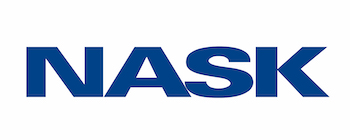| ||
| 58th Conference on Decision and Control - Nice, France - December 11th-13th 2019 | ||
|
Organized by
Unique visitors: 172107 Total Page views: 35037 (Since February 1st, 2018) Contact the webmaster Credits photo: Office de Tourisme de Nice, France Credits logo: Tania Canudas de Wit |
There will be four tutorial sessions at the conference on the following topics:
Organizers: Mustafa Khammash (ETH Zurich), Mario Di Bernardo (University of Naples Federico II), Diego Di Bernardo (Telethon Institute of Genetics and Medicine) Speakers: Mustafa Khammash (ETH Zurich), Diego Di Bernardo (Telethon Institute of Genetics and Medicine), Mario Di Bernardo (University of Naples Federico II), Filippo Menolascina (University of Edinburgh) Time and Location: Wednesday, December 11, 10:00-12:00, Apollon Abstract: This tutorial session presents an overview of the theory and design tools for the real-time control of living cells. The theoretical, computational, and experimental tools and technologies utilized for achieving such control make up a new and exciting area of study at the interface between control theory and synthetic biology—one we refer to as Cybergenetics. The session is intended to introduce control scientists and engineers to the different ways living cells can be controlled, and to the many opportunities for future developments, both theoretical and practical, that such control brings about.
Organizers: Nikolai Matni (University of Pennsylvania) and Anders Rantzer (Lund University) Speakers: Anders Rantzer (Lund University), Nikolai Matni (University of Pennsylvania), Alexandre Proutiere (KTH Royal Institute of Technology), Stephen Tu (University of California, Berkeley) Time and Location: Thursday, December 12, 10:00-12:00, Apollon Abstract: Machine and reinforcement learning are increasingly being applied to plan and control the behavior of autonomous systems interacting with the physical world. Examples include self-driving vehicles, distributed sensor networks, and agile robots. However, when machine learning is to be applied in these new settings, the algorithms had better come with the same type of reliability, robustness, and safety bounds that are hallmarks of control theory, or failures could be catastrophic. Thus, as learning algorithms are increasingly and more aggressively deployed in safety critical settings, it is imperative that control theorists join the conversation. The goal of this tutorial session is to provide a starting point for control theorists wishing to work on learning related problems, by covering recent advances bridging learning and control theory, and by placing these results within an appropriate historical context of system identification and adaptive control.
Organizers: Maria Laura Delle Monache (Inria Grenoble Rhône – Alpes), Jonathan Sprinkle (University of Arizona), Ramanarayan Vasudevan (University of Michigan), Daniel B. Work (Vanderbilt University) Speakers: Daniel B. Work (Vanderbilt University), Ramanarayan Vasudevan (University of Michigan), Jonathan Sprinkle (University of Arizona), Maria Laura Delle Monache (Inria Grenoble Rhône – Alpes) Time and Location: Thursday, December 12, 16:30-18:30, Apollon Abstract: This tutorial session provides an overview of the converging areas of control for autonomous vehicles, and control of the larger transportation system in which a small number of autonomous vehicles serve as actuators of traffic flow. The overview begins by describing the verification techniques and realistic sensor and control interfaces for safe real-time control of autonomous vehicles. Shifting towards a period when autonomous vehicles are present in large numbers, the session reviews classical traffic modeling, estimation, and control techniques, and then considers new methods available to model and use these autonomous vehicles to actuate bulk traffic flow composed primarily of human-piloted vehicles.
Organizers: Shinkyu Park (Princeton University), Nuno C. Martins (University of Maryland), Jeff S. Shamma (KAUST) Speakers: Jeff S. Shamma (KAUST), Nuno C. Martins (University of Maryland), Shinkyu Park (Princeton University) Time and Location: Friday, December 13, 10:00-12:00, Apollon Reference: S. Park, N. C. Martins and J. S. Shamma, Payoff Dynamics Models and Evolutionary Dynamics Models: Feedback and Convergence to Equilibria, ArXiv:1903.02018. Abstract: Population games model the strategic interactions among vast numbers of decision-making agents. In this context, the evolutionary dynamics of a population describes how the proportions of agents adopting each available strategy evolve in response to the payoff (or fitness) ascribed to each strategy by the game. This session begins with a review of the basic tenets of population games and evolutionary dynamics. Subsequently, it overviews recent methods that hinge on passivity-based techniques to characterize the stability of the evolutionary dynamics when a dynamical system (more general than a population game or a dynamically modified version thereof) governs the payoff. |
Key dates (2019)
Corporate Sponsors
Become a Platinum, Gold, Silver, Bronze, Copper Sponsor for the 58th CDC and place your banner here Gold Sponsors
Silver Sponsors
Bronze Sponsors
Copper Sponsors
Click here to see the complete list of sponsors and exhibitors |













